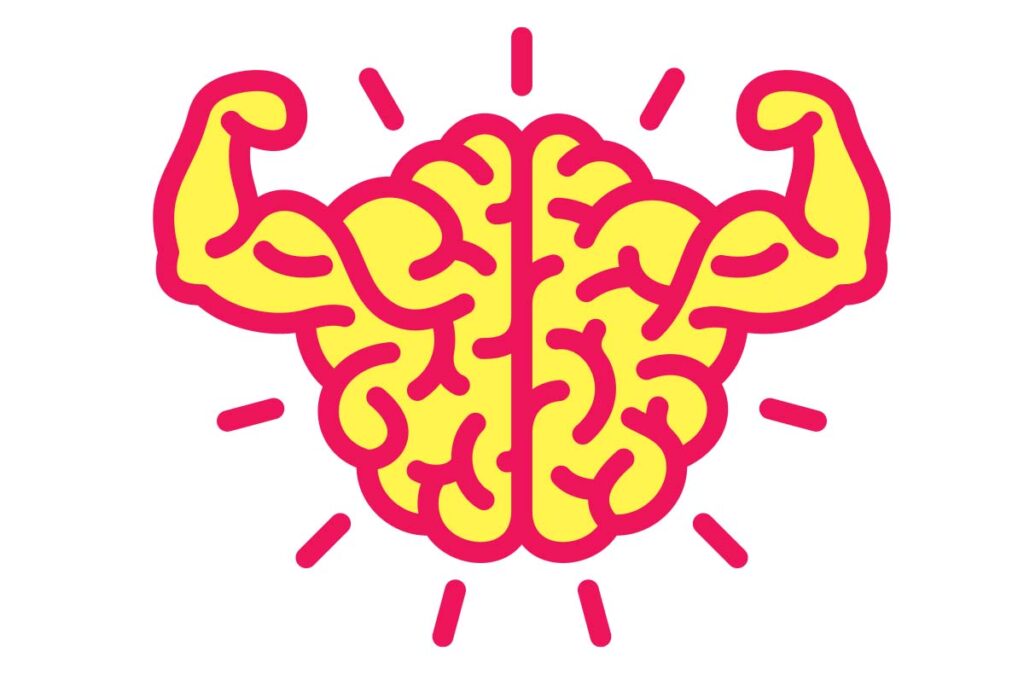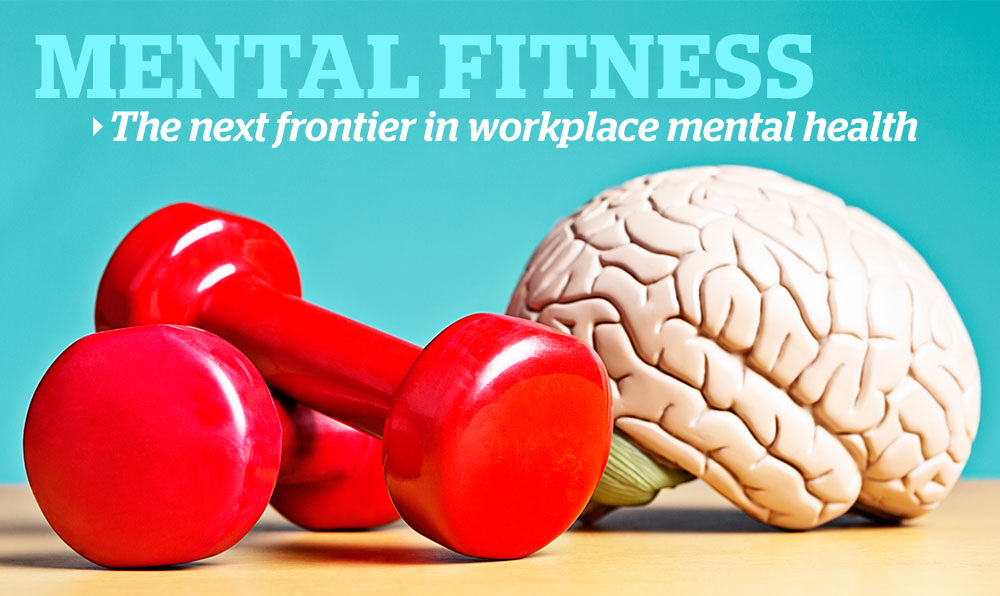
In today’s fast-paced world, stress, anxiety, and depression are more common than ever. While there are many ways to manage mental health, one of the most effective and often overlooked methods is regular physical exercise. Numerous studies have shown that exercise isn’t just beneficial for physical well-being—it can also have a profound impact on mental health, boosting mood, reducing stress, and enhancing overall emotional resilience.
In this blog, we’ll explore the connection between mental health and fitness, how exercise affects the brain, and practical ways you can use exercise to improve your mood and overall mental well-being.
1. The Science Behind Exercise and Mental Health
A. Exercise and Endorphins
One of the primary reasons exercise can elevate mood is the release of endorphins. Endorphins are chemicals produced by the brain that act as natural painkillers and mood elevators. Often referred to as the “feel-good” hormones, endorphins are released during physical activity, leading to feelings of euphoria and reduced perception of pain. This is commonly known as the “runner’s high.”
When you engage in activities like running, cycling, or even a brisk walk, your brain increases its production of these neurotransmitters, which can instantly lift your spirits and alleviate stress. This natural high is one of the key reasons why many people feel happier and more relaxed after a workout.
B. Reduction of Stress Hormones
In addition to increasing endorphin levels, exercise helps lower the production of stress hormones, such as cortisol and adrenaline. These hormones are released in response to stress and can contribute to feelings of anxiety, tension, and irritability. Regular exercise can help regulate these hormones, reducing their negative impact on the body and mind.
C. Improved Sleep
Good sleep is crucial for mental health, and exercise can significantly improve sleep quality. Physical activity helps regulate the body’s internal clock (circadian rhythm) and promotes deeper, more restorative sleep. Regular exercise can also reduce insomnia and improve overall sleep patterns, which is essential for maintaining mental clarity and emotional stability.
D. Brain Chemistry and Neuroplasticity
Exercise stimulates the production of brain-derived neurotrophic factor (BDNF), a protein that promotes the growth and survival of neurons in the brain. BDNF plays a crucial role in neuroplasticity—the brain’s ability to adapt and change over time. This means that exercise not only improves mood in the short term but can also enhance cognitive function and emotional resilience over time.
2. How Exercise Boosts Mood
A. Alleviates Symptoms of Depression and Anxiety
Depression and anxiety are two of the most common mental health issues globally, and both can be significantly alleviated through regular exercise. Studies show that exercise can be as effective as medication in treating mild to moderate depression. The combination of increased endorphin production, reduced stress hormones, and the mental clarity that comes with physical activity all contribute to improving mood.
For those with anxiety, exercise can provide a healthy distraction, helping to reduce worry and promote relaxation. Activities that require focus, such as yoga or weightlifting, can help calm a racing mind and reduce symptoms of anxiety.
B. Boosts Self-Esteem
Achieving fitness goals, whether it’s running a mile, lifting a certain weight, or simply showing up for a daily workout, can significantly boost self-esteem. Exercise provides a sense of accomplishment and mastery, which can translate into greater confidence and a more positive self-image.
Feeling strong, capable, and in control of your body can also improve how you view yourself. This increased self-esteem is particularly important for mental health, as a positive self-image is linked to reduced symptoms of depression and anxiety.
C. Enhances Social Connections
Many forms of exercise, such as team sports, group fitness classes, or even walking with friends, encourage social interaction. Building relationships and connecting with others during physical activity can help combat feelings of loneliness and isolation, which are often contributing factors to mental health issues.
Exercise can also serve as a way to engage with like-minded individuals, whether it’s joining a running club, participating in a fitness challenge, or attending a community yoga class. These social connections can provide emotional support and further enhance mental well-being.
D. Increases Focus and Mental Clarity
Exercise improves blood flow to the brain, which enhances cognitive function and mental clarity. Physical activity can help you feel more focused, energized, and better able to handle the demands of daily life. The sense of mental clarity you gain from exercise can help reduce stress and promote a more positive outlook.
3. Types of Exercise That Can Boost Your Mood
Not all exercises are created equal when it comes to improving mental health. However, the best type of exercise is the one you enjoy and can commit to regularly. Here are some of the most effective forms of exercise for boosting mood:
A. Aerobic Exercises (Cardio)
Aerobic exercises like running, cycling, swimming, and dancing are great for boosting endorphin levels and reducing stress. Even a simple 20-30 minute walk can have a profound impact on your mental state. Cardio exercises increase heart rate and improve overall cardiovascular health, which in turn supports brain function and mood regulation.
B. Strength Training
Strength training, including weightlifting and bodyweight exercises, has been shown to reduce symptoms of anxiety and depression. Lifting weights can provide a sense of control and empowerment, and the focus required for proper form helps reduce mental clutter and promote mindfulness.
C. Yoga and Mindfulness Practices
Yoga is a powerful combination of physical exercise and mindfulness that promotes mental relaxation and stress relief. The deep breathing and stretching involved in yoga help calm the nervous system and reduce the production of stress hormones. Yoga also encourages self-awareness and acceptance, which can be particularly helpful for those struggling with anxiety or negative self-talk.
D. Outdoor Activities
Exercising outdoors in nature, also known as “green exercise,” has been shown to enhance mood even more than indoor workouts. Activities like hiking, trail running, or cycling in nature offer the added benefits of fresh air, sunlight, and a change of scenery, which can further elevate mood and reduce stress.
4. Tips for Using Exercise to Improve Mental Health
A. Start Small and Be Consistent
If you’re new to exercise or haven’t been active for a while, start with small, achievable goals. Aim for 15-30 minutes of exercise a few times a week and gradually increase the intensity and duration as you build confidence and stamina. Consistency is key, so find activities that you enjoy and can sustain over the long term.
B. Focus on Enjoyment, Not Perfection
The goal of exercise for mental health is not to achieve a certain physique or performance level—it’s to feel better mentally and emotionally. Focus on how exercise makes you feel rather than worrying about perfection or comparing yourself to others. Enjoyment should be the top priority.
C. Listen to Your Body
While exercise is incredibly beneficial for mental health, it’s important to listen to your body and avoid overtraining. Pushing yourself too hard can lead to burnout, fatigue, and even injury. Rest and recovery are just as important as physical activity for maintaining mental and physical well-being.
D. Combine Exercise with Other Mental Health Practices
For optimal results, combine exercise with other mental health practices, such as mindfulness, meditation, or journaling. These practices can complement the effects of exercise and help you manage stress, process emotions, and maintain a positive mindset.
Conclusion
Exercise is a powerful tool for improving mental health, with the potential to reduce symptoms of anxiety, depression, and stress while boosting mood, self-esteem, and cognitive function. Whether you prefer running, yoga, strength training, or just taking a walk in the park, regular physical activity can have a profound impact on your emotional well-being.
By making exercise a consistent part of your life, you’ll not only improve your physical health but also enhance your mental resilience, helping you navigate life’s challenges with a clearer mind and a more positive outlook.
